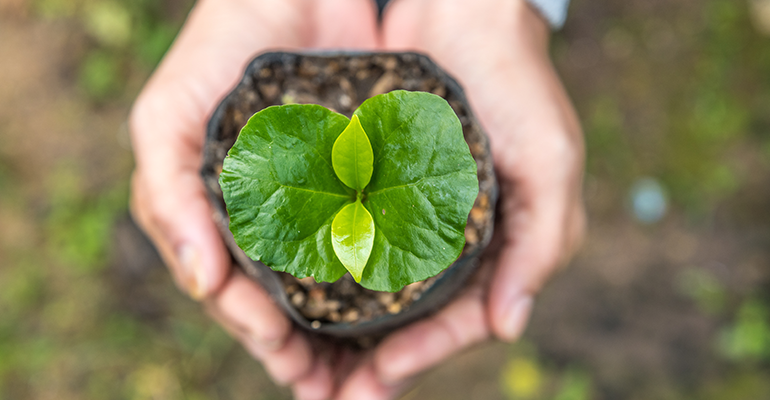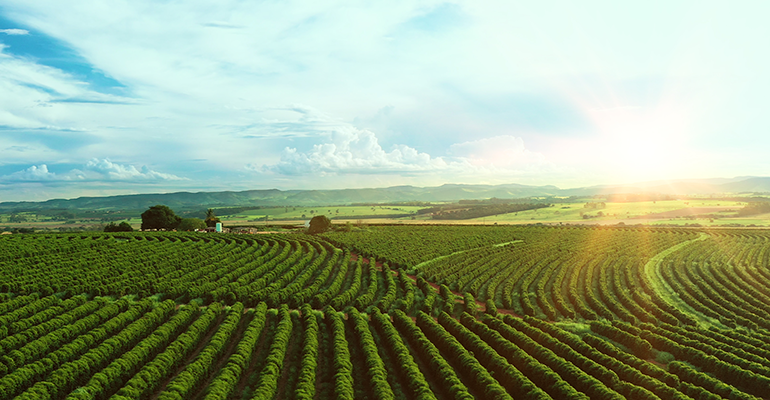News
Rainforest Alliance praises Nescafé for regenerative agriculture efforts
27 Jun 2023
Instant coffee brand Nescafé is supporting coffee farmers to adopt regenerative agricultural practices, according to a recent supply chain assessment by Rainforest Alliance that highlighted “encouraging trends”.
On 6th June 2023, the Nestlé-owned coffee company released its Nescafé Plan 2030 Progress Report, detailing its progress towards its sustainability goals. The results indicate that farmers are gradually adopting regenerative agricultural practices and improving yields. Regenerative agriculture refers to alternative food production practices that support the environment and social impact better than current methods.

It published its inaugural report following an impact assessment between the brand and international non-governmental organisation (NGO), Rainforest Alliance. The assessment gives insights into how Nescafé’s sourcing and supply chain operations can better benefit farmers, communities, and the environment. From 2018 to 2022, the duo conducted the impact assessment with over 7,000 coffee farmers in 14 countries where the company sources coffee.
“The Rainforest Alliance impact assessment shows that farmers are gradually adopting regenerative agricultural practices and improving farming yields,” Marcelo Burity, head of Green Coffee Development for Nescafé, told Ingredients Network.
Growing practices
The Rainforest Alliance works with the Nescafé team to monitor and assess their efforts through the Nescafé Plan. “We have observed encouraging trends, including improved incomes in some countries and increased adoption of important regenerative practices, such as integrated weed and pest management,” said Yustika Muharastri, monitoring and evaluation manager from the Rainforest Alliance.
The report highlights intercropping, mulching and integrated weed management as recently adopted practices contributing to regenerative farming. Intercropping involves growing multiple crops in proximity, which is often pursued to develop a greater yield on land by using resources that a single crop would otherwise not use. Mulching is the practice of placing a material layer over soil to save water, discourage weeds and enhance the plant-surrounding soil. Integrated weed management uses a range of multidisciplinary techniques to control weeds effectively.
Environmental damage is a shared concern
Climate change is the number one concern for coffee farmers in the 14 countries the impact assessment between Nescafé and Rainforest Alliance explored. High input costs and low raw material prices are vital issues among farmers.
In 2022, Nescafé trained farmers on regenerative agricultural practices, reaching over 100,000 farmers in 14 countries. The coffee name also enabled over 900,000 farmers to engage in training to learn better farming practices and made inroads to improving the farm economics for farmers in several countries, Rainforest Alliance said in its impact assessment.
 Pictured: Aerial image of a coffee plantation in Brazil | © AdobeStock/Marcelo
Pictured: Aerial image of a coffee plantation in Brazil | © AdobeStock/Marcelo
As part of the plan, Nescafé planted 1.4 million trees in and around coffee farms that supply coffee to the company. By planting these trees, Nescafé aims to provide shade to prevent damage to coffee from sun overexposure and to give farmers additional revenue sources, Nescafé says. The company plans to enhance coffee farm yields by rejuvenating coffee trees. In 2022, the company distributed 23 million disease and drought-resistant, high-yield coffee plantlets to help reinvigorate coffee plots, lift productivity, and lower agrochemical use.
“The Nescafé Plan 2030 Progress Report shows the potential of regenerative agriculture to help make coffee farming more sustainable over the long term,” said Philipp Navratil, head of the Coffee Strategic Business Unit at Nestlé.
Focusing on farming economics
Through its Nescafé Plan 2030, the company is piloting financial support schemes to help farmers transition to more sustainable farming practices. Approximately 3,000 coffee farmers have taken part in countries including Côte d’Ivoire, Indonesia, and Mexico, where Nescafé says farmers earn, on average, less than a living income.
The ongoing pilots see the company test conditional cash incentives to reward farmers transitioning to regenerative agriculture, rejuvenating coffee plots, and engaging in weather insurance schemes to protect farmers’ income from the unforeseen impacts of climate change.
“We are supporting coffee farmers to make this transition and are giving them the know-how and tools they need to increase yields and income while helping reduce carbon emissions at the same time,” Navratil added.
Nescafé says most farmers say the main reasons for the Nescafé Plan’s success are its consistent and high-volume purchases, regular technical assistance on the ground and access to markets.
Coffee farming in 2030
Following the release of its first Nescafé Plan 2030, the coffee company plans to produce a progress report annually. It aims to show how helping coffee farming communities to make the transition to regenerative agriculture practices and improving their livelihoods by doing so is evolving. The Rainforest Alliance intends to continue to collaborate with Nescafé to support its plans to improve the livelihoods of more coffee farmers.
Commenting on the most significant findings from its impact assessment, Burity said: “Coffee farmers are gradually adopting regenerative agriculture with farming yields starting to increase.”
The findings from the impact assessment will inform the Nescafe Plan 2030. “We are able to better understand the correlations between regenerative agriculture, yields and income, to improve and refine farming models,” says Burity. “We will reinforce farmer field training to accelerate the transition to regenerative agriculture,” Burity adds, when asked if Nescafé will make any changes to the plan following your assessment.
Related news

Oat Barista: Innovation for game-changing beverages
20 Nov 2025
Oat Barista is a clean label, sustainable, and innovative drink base specifically designed to create the perfect foam in one single ingredient.
Read more
How younger consumers are redefining ingredient choices and rejecting brand loyalty
18 Nov 2025
Gen Z and millennial consumers’ preferences for transparency, functionality, and purpose are “redefining the very nature of consumption itself”, says SPINS.
Read more
Hybrid formats and flexible positioning to disrupt category norms in 2026
17 Nov 2025
Trend forecasters expect food and drink to move more fluidly across occasions, functions, and formats as consumers seek versatility, novelty, and convenience.
Read more
Danone highlights digestive health as potential ‘tipping point’ for food industry
13 Nov 2025
Danone is betting on a food industry “tipping point” that will bloat the market for healthy products, particularly those related to gut health.
Read more
New UPF standard hoped to offer consumers ‘coherence and clarity’
10 Nov 2025
Ingredients companies are being urged to enter “a new era of partnership and innovation” following the launch of the industry’s first non-UPF verification scheme.
Read more
Faravelli at Fi Europe: Showcasing FARA® functional solutions for food and nutra
28 Oct 2025
At Fi Europe 2025 in Paris (stand 72M39), Faravelli showcases FARA® Customized Functional Solutions and a wide ingredient portfolio for food and nutra – delivering quality, innovation, and expertise.
Read more
Agrigum Redefined FIBER
27 Oct 2025
Agrigum has transformed gum acacia into a natural, science-backed fibre that supports gut health, sustainability, and innovation across global food and nutrition applications.
Read more
Expanding boundaries in food & beverage innovation
23 Oct 2025
IMCD and FrieslandCampina Professional expand partnership to deliver Kievit® across EMEA, enabling brands to enhance quality and accelerate time-to-market for tomorrow’s food & beverage creations.
Read more
Amazon Grocery launch aims to balance quality with affordability
22 Oct 2025
Global e-commerce giant Amazon has introduced a new private-label food brand, combining existing Amazon Fresh and Happy Belly products with new everyday items.
Read more
Powerade enters hydration space with launch of Power Water
21 Oct 2025
Coca-Cola’s Powerade brand has launched a zero-sugar, electrolyte-enhanced functional water, marking the brand's entry into the hydration space.
Read more